Conversion Therapy
How It Endangers LGBT Lives
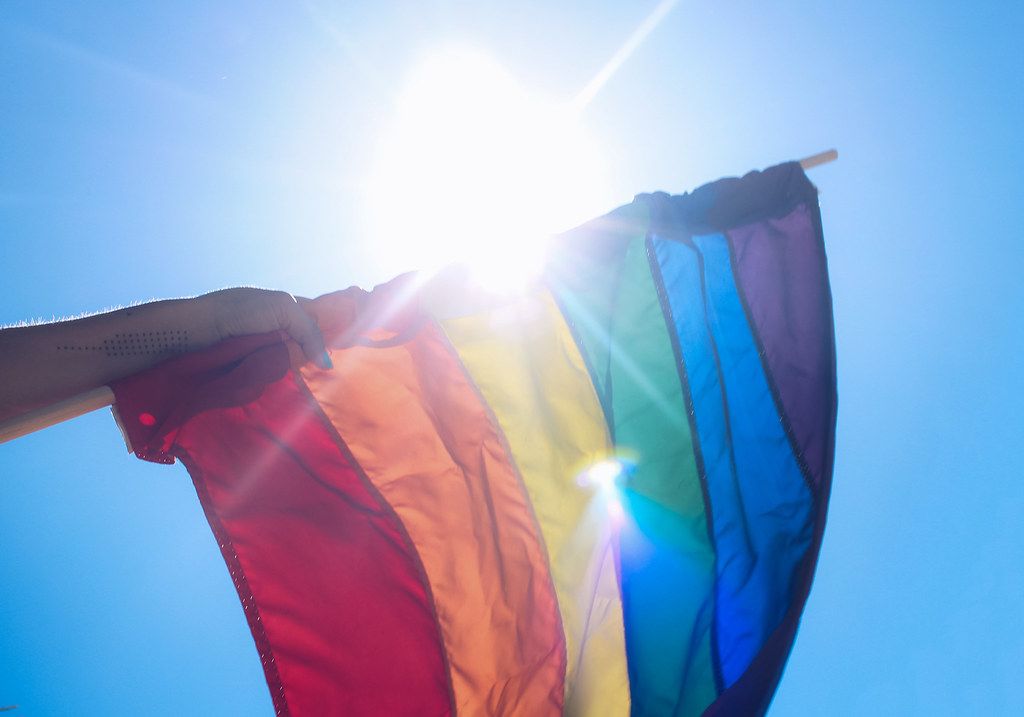
What is Conversion Therapy?
The practice of conversion therapy is the attempt by an outside organization (often religious or “therapeutic”) to change an individual person’s sexual orientation or gender identity. Conversion therapy may also be known as reparative therapy. It can also take many shapes and forms. It could be more clinical, with the pseudo appearance of actual therapeutic practice, or it could be influenced by religion, with a prayer-focused approach. (Some of the largest conversion therapy organizations, such as Exodus International, are based in Christianity.) While it may manifest differently for different people, there is one fundamental thing about the practice: it is dangerous.
LGBTQ+ children and young adults are already an extremely vulnerable population. Not only are they contending with higher rates of bullying and dating violence compared to their straight and cisgender peers, but participation in conversion therapy leads to very drastic mental and socioeconomic outcomes.
What makes conversion therapy so devastating can be summed up in this quote by a survivor:

"Conversion therapy is something that at its core is telling somebody that there's something fundamentally broken with them and it not only can be fixed, it needs to be fixed."
Peter Nunn, Conversion Therapy Survivor
NPR

Conversion therapy rose to promience in the 1960s and 70s. While the Stonewall Riot had lead to the prevelence of the gay liberation movement, it was still a difficult time to be a member of the queer community. Essentially no protective legislation was in place to protect LGBTQ+ American citizens, resulting in many losing employment if they were outed and society itself was extremely hostile. What was worse is that the American Psychiatric Association DSM classified homosexuality as a mental illness. When it was eventually removed in 1973, there was still intense cultural stigma around being queer, and therefore many young adults were subjected to the process through the decades.
Many organizations have since come to condemn the practice of conversion therapy in recent years, citing its lack of efficacy and its troubling toll on the mental health of those who undergo the practice. American Psychiatric Association is one of the countless reputable health organizations that have condemned the practice of conversion therapy in recent years. In 2007, American Psychological Association conducted a literature review of studies that were looking at the efficacy of conversion therapy.
Only 1 in 30 studies was considered credible to meet contemporary American Psychological Association’s standards for research.
The survey found no linkages between conversion therapy and long-term change in sexual behavior.
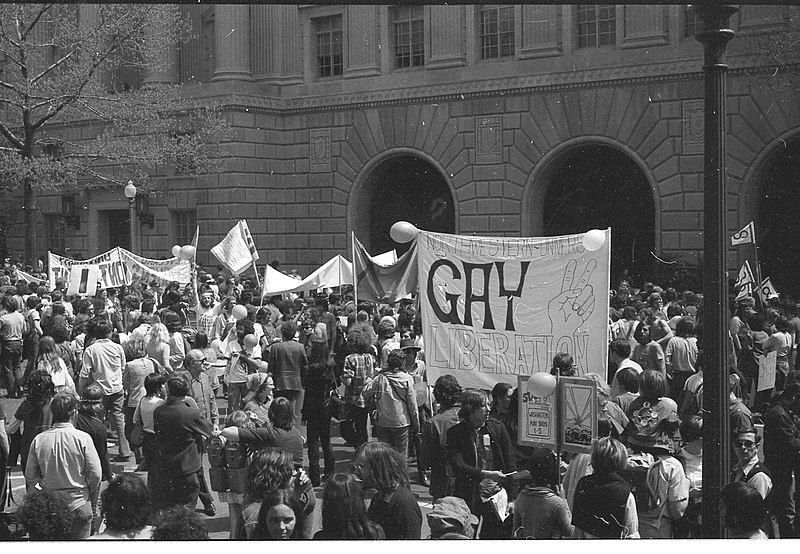


What It Is and Who is Impacted
As stated before, conversion therapy can have many different manifestations. To some practitioners, it may look a lot like talk therapy, where a licensed counselor meets with a person for discussion. It may also involve prayer and other religious elements. Or, in some severe cases, it might include elements of torture and violence, such as electroshock therapy used to create an aversion to sexual stimuli.
Over 700,00 people in the United States had reported being coerced into conversion therapy at some point during their lives.
According to data from the San Fransico’s Family Acceptance Project, 53% experience some sort of encouragement for sexual orientation change during adolescence. Of these survey respondents from the Family Acceptance Program, it was found that 21% had experiences of attempted conversion at home, with parents, whereas 32% had both in-home and organizational experience with conversion.
While there are some adults who enroll themselves into conversion therapy programs because of one reason or another, the majority of those who are placed into these programs are minors and young adults.
48% of those attending conversion therapy are under the age of 18. 78% are under 24 years old.
The choice made to subject a child or young adult to conversion therapy programs can be influenced by societal pressure, but one of the largest influences of this decision can be from the cultural background and religious influence.
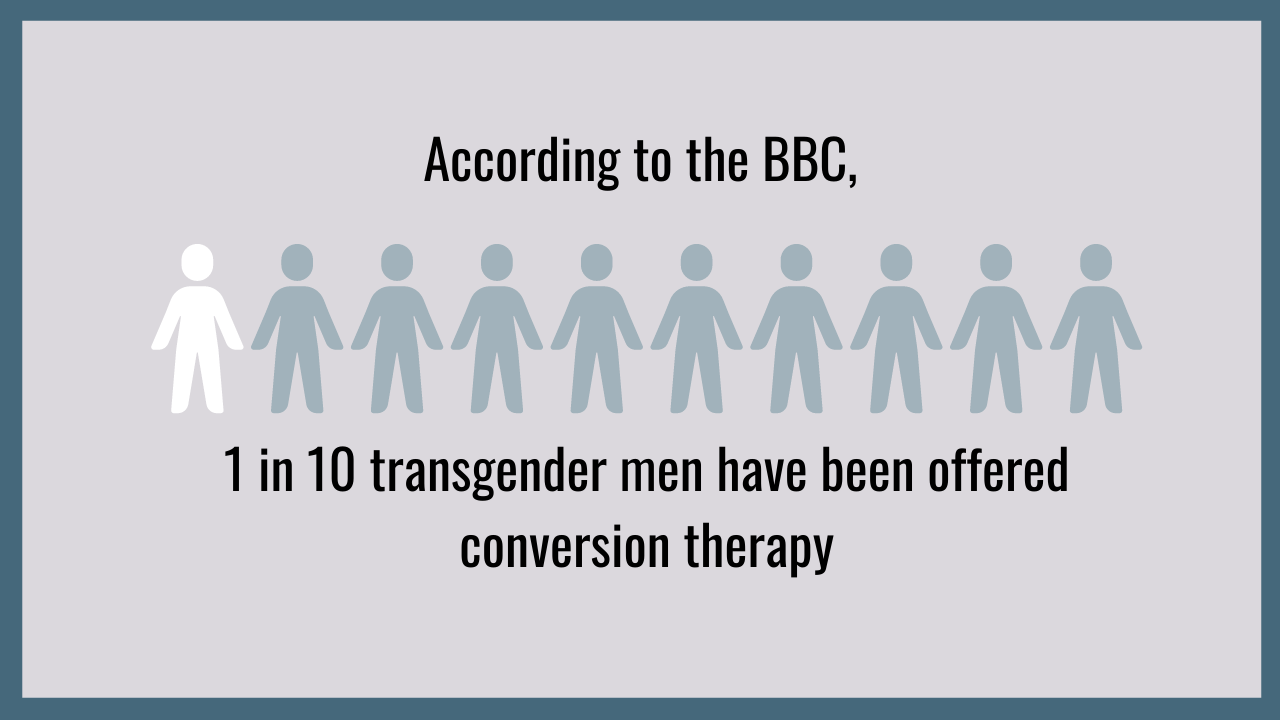
Pray the Gay Away
Religious Influence on Conversion Therapy
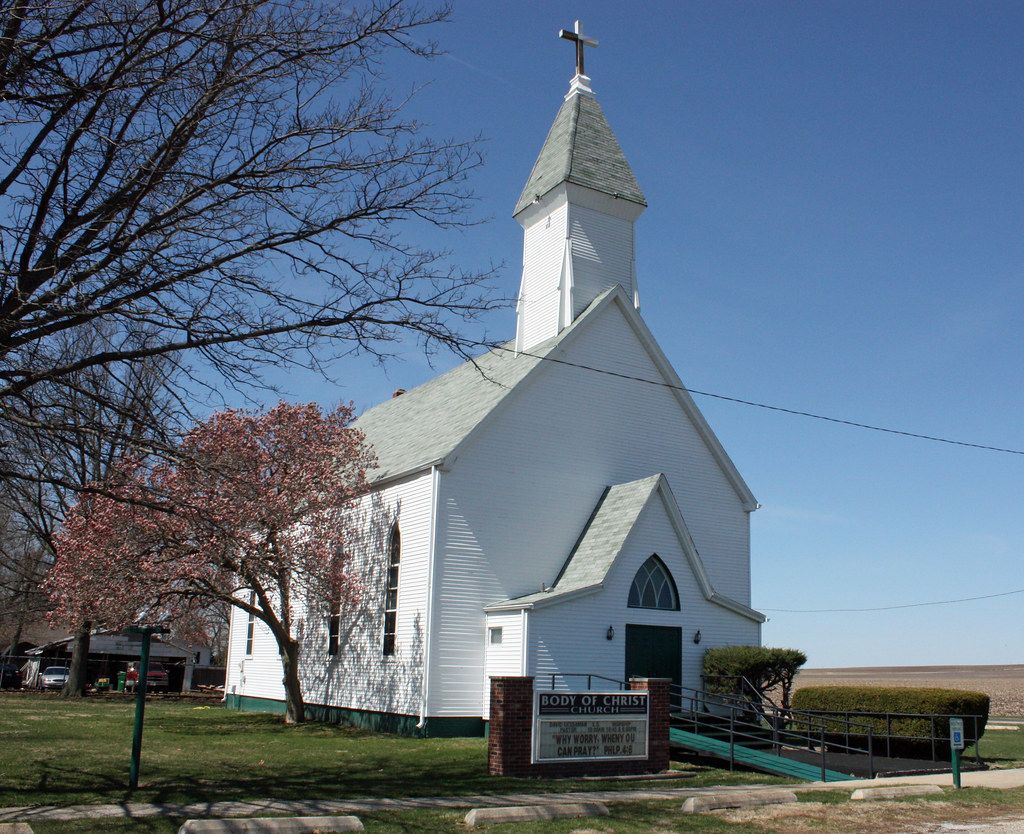
There is, without a doubt, a correlation between religious activity and conversion therapy. Some of the major corporations that have made money off of conversion therapies, such as the aforementioned Exodus International, have been based in religious ideology, centering around prayer and faith-focused approaches to dealing with “sin.”
The majority of those who have experienced conversion therapy have been in the context of a religious organization.
The influence of a religion can be viewed by how accepting a religion has been of homosexuality and transgender identity. Attitudes have changed over the years, of course, and many religious sects have become more accepting.
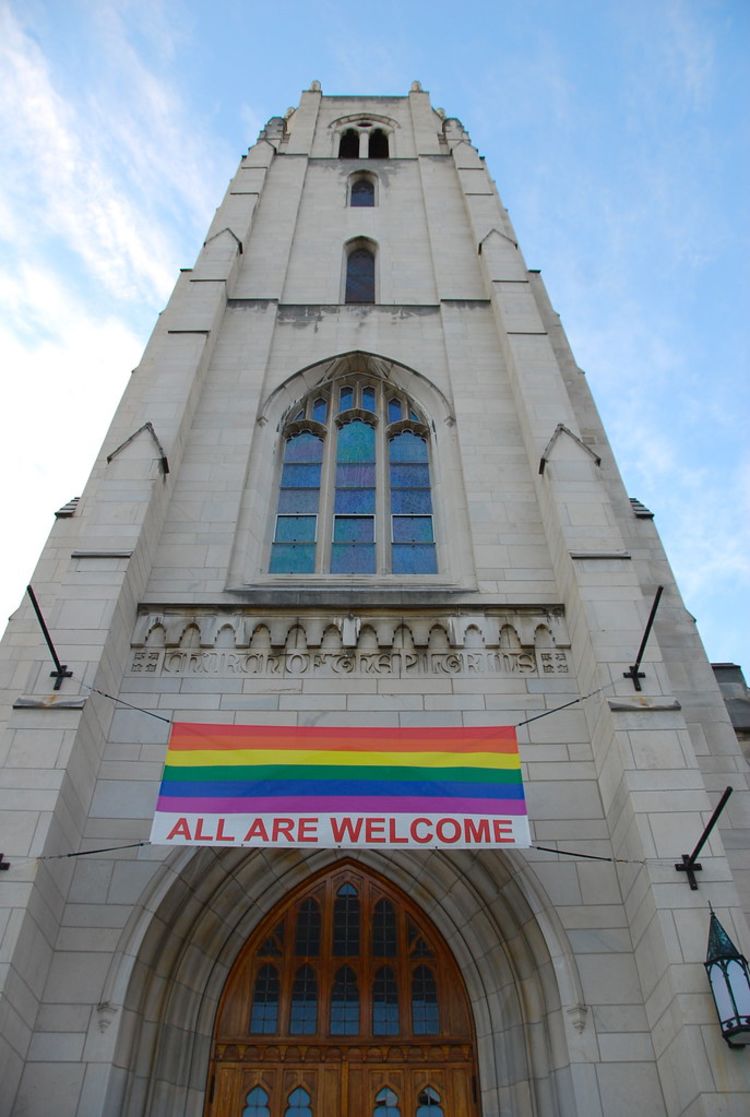
What It Does to Mental Health
Conversion therapy has been proven, time and time again, to have a significant impact on the mental health of young adults who are coerced into it. All fronts of a person’s life can be influenced by the trauma incurred by conversion therapy: mental and psychical health as well as peer, family, community, and romantic relationships. In fact, there is a connection between experiencing conversion therapy and having lower educational attainment and lower weekly income.
Although some these elements cannot be quantified, the impact of conversion therapy on a person’s mental health has been and they are just as dire. Depression rates increase by 52% if a person goes through conversion therapy. Worst of all, suicide ideation increases fivefold in young adults who are subjected to conversion therapy.

What You Can Do
1.) Raise Awareness
Conversion therapy is a topic that, unlike same-sex marriage in the 2000s, receives as much conversation in media. It is a practice that involves minors and their parental figures, so there is something taboo about talking about its impact. Therefore, just talking about the issue and being an advocate for survivors can be helpful.
2.) Contact Your Representatives
Legislators all over the world have recognized that conversion therapy is a direct threat to young people. Countries have enacted national bans on the practice. In a local sense, however, the United States operates in such a way that bans are patchwork. Below is a map that includes the states where conversion therapy has currently been banned. So far, only twenty states and two territories (D.C. and Puerto Rico) have put some sort of ban into place. Additionally, over 100 municipalities have placed their own bans.
In states that do not have any legislation against conversion therapy, 20,000 LGBTQ minors will be subjected to this harmful practice.
If you don’t live in one of the dark blue states, please consider writing to your local representatives to introduce bills that will introduce bans and potentially save lives.
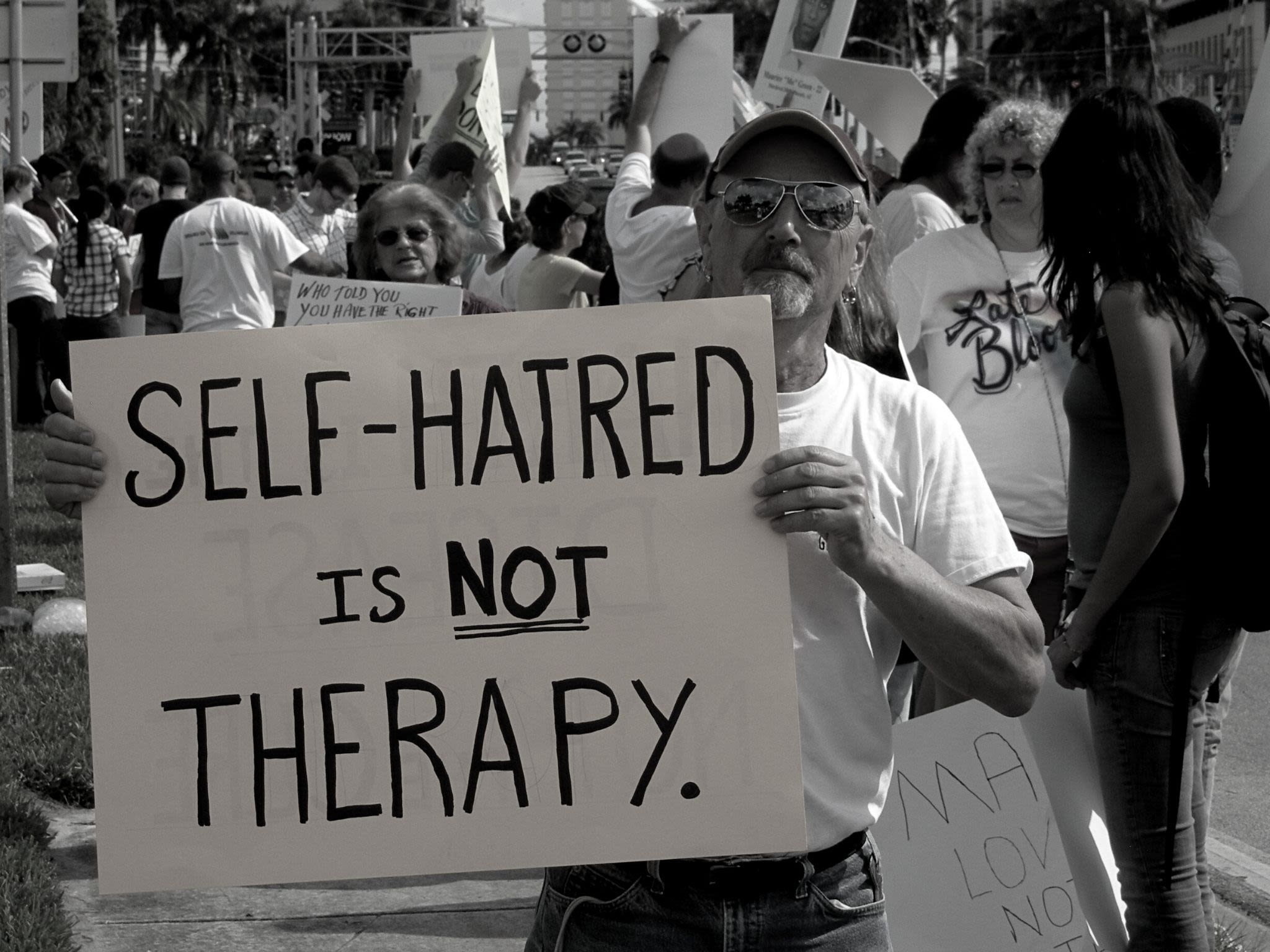
Bibliography
Butkus, Renee and Daniel, Hilary. “Lesbian, Gay, Bisexual, and Transgender Health Disparities: Summary of a Policy Position Paper from the American College of Physicians.” Annals of Internal Medicine. American College of Physicians. July 21, 2015, https://www.acpjournals.org/doi/10.7326/M14-2482?articleid=2292051
Cathay Renna. “First Study Shows Pivotal Role of Parents in Conversion Efforts to ChangeLGBT Adolscent’s Seuxal Orientation.” Family Acceptance Program. San Francisco University. November 8, 2018, https://familyproject.sfsu.edu/conversion-therapy-begins-at-home.
Collins, Donald. “The Damaging Mental Health Effects of LGBTQ+ Conversion Therapy.” PsychCentral. Healthline. June 24, 2021. https://psychcentral.com/news/conversion-therapy-for-lgbt-kids-linked-to-higher-risks-of-depression-suicide#what-is-it
“Conversion ‘Therapy’ Laws.” Movement Advancement Project. Movement Advancement Project. Accessed February 20, 2022. https://www.lgbtmap.org/equality-maps/conversion_therapy
Cruz, Caitlin. “The Damage from Gay Conversion Therapy Still Lingers for Many LGBTQ+ People.” PBS. PBS. October 8, 2021. https://www.pbs.org/independentlens/blog/damage-from-gay-conversion-therapy-still-lingers-for-many-lgbtq-people-cured/
Farley, Harry and Lawrie, Eleanor. “What is Conversion Therapy and When Will It Be Banned?”BBC. BBC. May 11, 2021. https://www.bbc.com/news/explainers-56496423
Leila Fadel. “Activists and Sucide Prevention Groups Seek Ban on Conversion Therapy for Minors.” NPR. NPR. April 26, 2019, https://www.npr.org/2019/04/26/716416764/activists-and-suicide-prevention-groups-seek-bans-on-conversion-therapy-for-mino
Matousek, Richard. “2020 ‘Conversion Therapy’ & Gender Identity Survey.” Stonewall. 2020, https://www.stonewall.org.uk/system/files/2020_conversion_therapy_and_gender_identity_survey.pdf
“One UN Human Rights Expert’s Fight to Eliminate ‘Conversion Therapies.’” United Nations. United Nations. February 18, 2022, https://news.un.org/en/story/2022/02/1112242.
“States Taking an Active Role in Banning Conversion Therapy.” National Board for Certified Counselors. National Board for Certified Counselors. Accessed February 20, 2022, https://www.nbcc.org/govtaffairs/newsroom/states-taking-an-active-role-in-banning-conversion-therapy
“The Lies and Dangers of Efforts to Change Sexual Orientation or Gender Identity.” HRC Foundation. Accessed February 20, 2022. https://www.hrc.org/resources/the-lies-and-dangers-of-reparative-therapy.
Turban, Jack. “Gay Conversion Therapy Associated with Suicide Risk.” Psychology Today. Sussex. November 14, 2018. https://www.psychologytoday.com/us/blog/political-minds/201811/gay-conversion-therapy-associated-suicide-risk
“Views on Homosexuality.” Pew Research Center. Pew Research Center. Accessed February 20, 2022. https://www.pewforum.org/religious-landscape-study/views-about-homosexuality/
